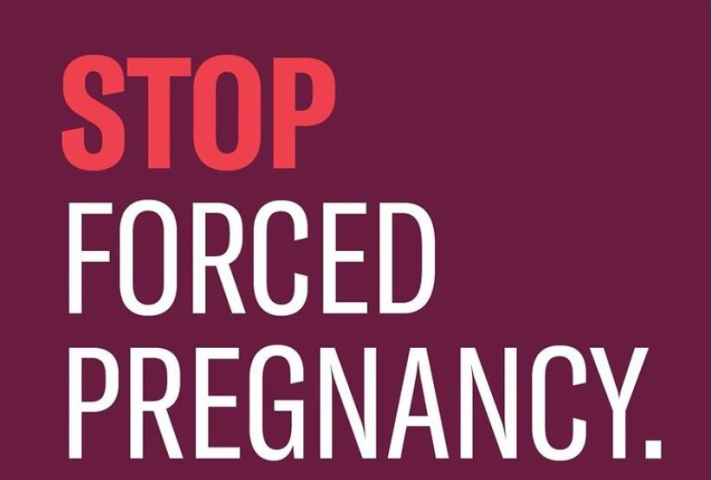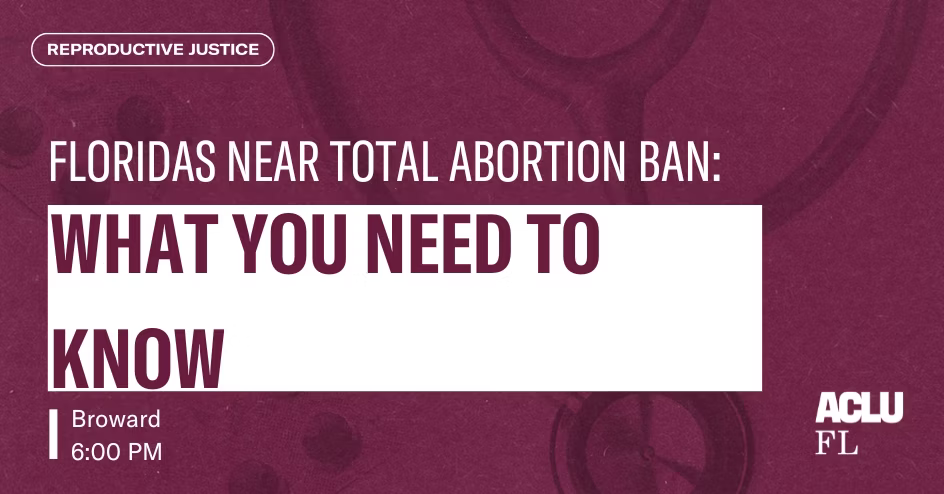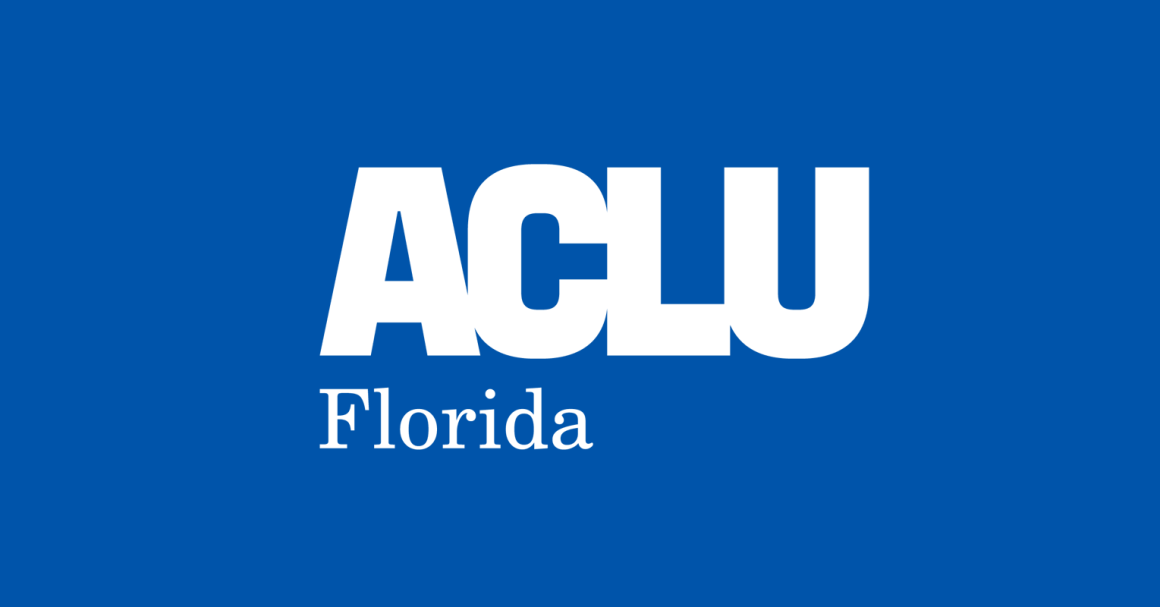Access to reproductive care in Florida is very confusing right now. Many people have questions about what access looks like. Join us on July 30 to get answers to these questions and learn about Amendment 4.
This information is vital to EVERYONE to know so you can be a resource for your friends and family and get involved to ensure we protect the freedom to make personal medical decisions, including about abortion, free of government intrusion.
Light refreshments will be provided.
Event Date
Tuesday, July 30, 2024 - 6:00pm to7:00pm
Featured image

More information / register
Venue
Broward County (Private)
Website
Tweet Text
Share Image
Date
Tuesday, July 30, 2024 - 7:00pm

